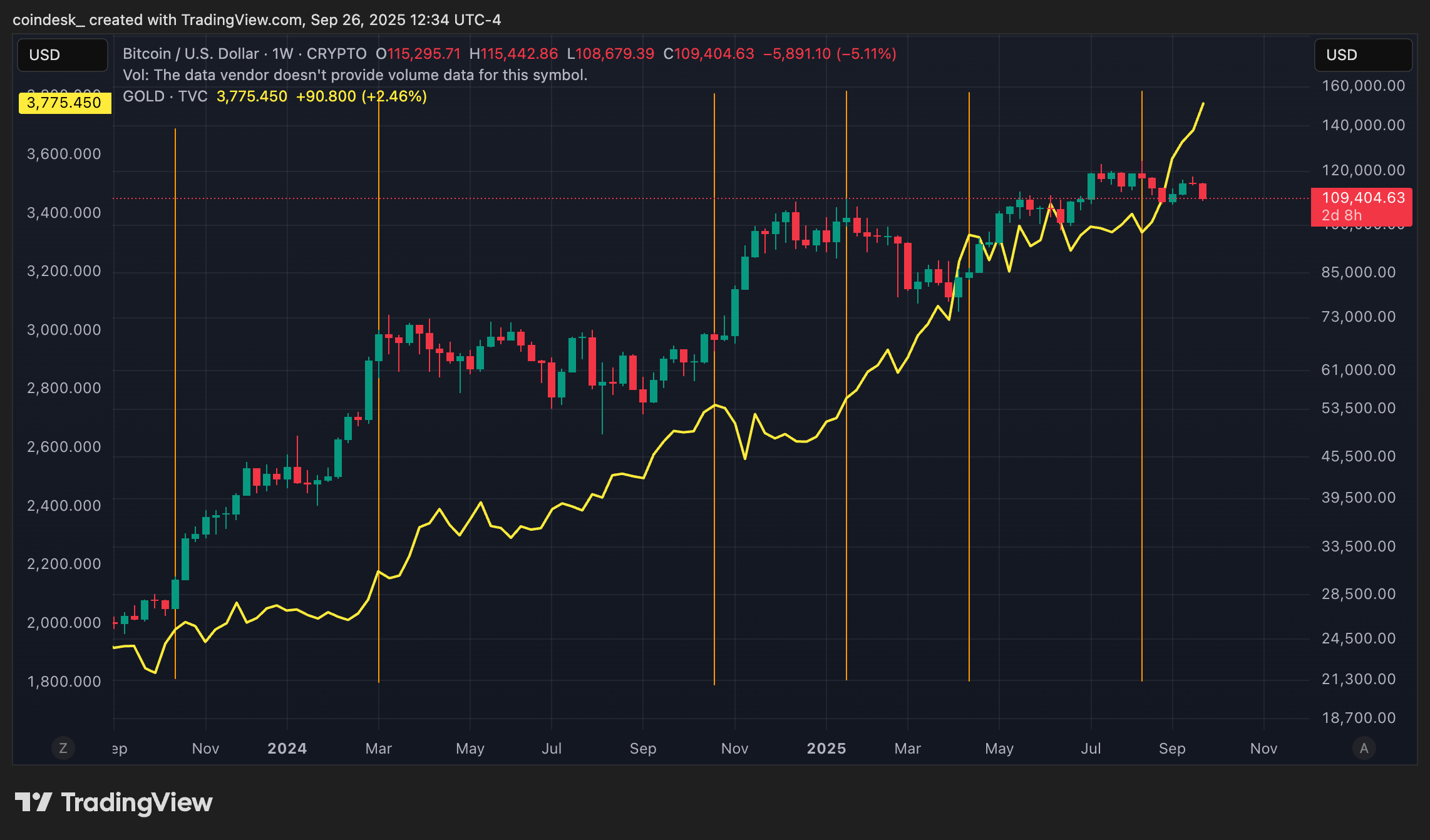When Could Bitcoin Break Out to New Highs? Watch Out for Gold
Stocks printed fresh records and gold is on a tear crossing $3,900, but the last leg higher in traditional markets left bitcoin (BTC) behind.
The largest crypto, often touted as digital gold, has been stuck in a $100,000–$120,000 range for nearly three months after setting new highs in July and August.
The lag fits a pattern. Over the past couple of years, gold and bitcoin have taken turns: when gold breaks out, bitcoin tends to consolidate; when gold cools, BTC often resumes the advance.

From January into April, BTC plunged about 30% while gold kicked off its next leg, rising roughly 28% to $3,500 at the height of the global tariff tantrum. Gold then stalled into August, and bitcoin took the baton, rallying about 60% from trough to peak to notch fresh records.
Bitcoin to catch up when gold tires
"Gold likes low rates and a weak economy, whereas bitcoin likes them firm," said Charlie Morris, chief investment officer at ByteTree, in a recent report. "Because bitcoin likes a super strong economy, and low rates are associated with economic slumps." He added that the BTC–gold relationship is loose: the 90-day correlation has averaged around 0.1 — "basically zero."
Right now, gold is in a lockout rally toward $4,000, up about 17% across a seven-week winning streak. Bitcoin, meanwhile, is still ranging below $120,000.
If the recent rhythm holds, a pause in gold, or even a sideways drift, could be the tell for BTC’s next break out of the range and another run at records.
"The good news for bitcoin is that sooner or later, gold will get tired," Morris said.
You May Also Like

Coinbase Slams ‘Patchwork’ State Crypto Laws, Calls for Federal Preemption

Nate Geraci: More than 30 cryptocurrency ETFs submitted applications to the US SEC yesterday
